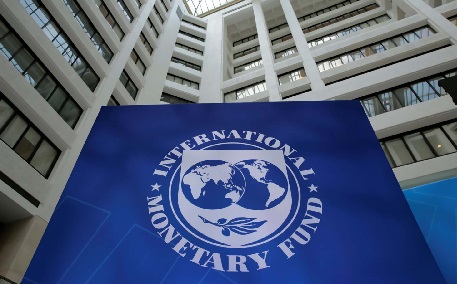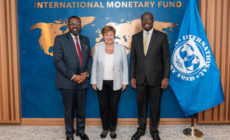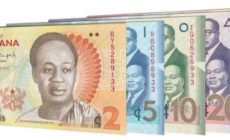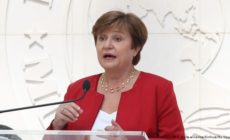IMF provides clarification on Bank of Ghana’s GH¢60 billion loss
- Posted on
- Comment

The International Monetary Fund (IMF) has addressed the concerns surrounding the Bank of Ghana’s (BoG) GH¢60 billion loss incurred during the 2022 fiscal year, aiming to allay anxieties by asserting that there is no need for alarm.
The BoG has faced heightened scrutiny from opposition political factions and civil society organizations due to the substantial loss it sustained. The Minority Leader, Dr. Cassiel Ato Forson, took a stance on Tuesday, demanding the resignation of the Governor, Dr. Ernest Addison, and his deputies, attributing the losses to recklessness within the apex bank—an allegation rejected by the BoG.
The IMF has since posted a detailed explanation on its official website, shedding light on the BoG’s participation in the Domestic Debt Exchange Programme (DDEP), a critical facet of the government’s strategy to reestablish macroeconomic stability and public debt sustainability.
The IMF clarified that the BoG’s involvement in the DDEP was intended to distribute the burden of the program among various entities, including government debt holders, financial institutions, banks, pension funds, and individuals.
The incurred loss, as per the IMF, has played a role in diminishing the BoG’s net equity to a negative value.
However, the IMF underscored that this occurrence does not hinder the BoG’s ability to fulfill its policy mandates and execute measures to steer inflation gradually towards its 8-percent target.
The IMF expressed confidence that the central bank’s income is anticipated to be sufficient for covering operational costs related to monetary policy.
Consequently, the IMF expects the BoG’s net equity to witness significant improvement over time, eventually returning to positive territory.
Below is the IMF’s post about the BoG’s losses;
Why did the Bank of Ghana (BoG) incur losses from the authorities’ domestic debt exchange and what are their implications?
The Ghanaian authorities’ domestic debt exchange (DDE) is a key element of their plan to restore macroeconomic stability and public debt sustainability. The BoG is participating in the DDE to share some of the burden the DDE places on government debt holders, along with banks, other financial institutions, pension funds and individuals.
The loss the BoG incurred in the process has contributed to reducing its net equity to a negative value. Importantly, however, this does not prevent the BoG from fulfilling its policy mandates and ensuring inflation gradually returns toward its 8-percent target. Indeed, central bank income is expected to be sufficient to cover monetary policy operational costs. The BoG’s net equity is expected to improve significantly over time and eventually return to positive territory.
-Graphic










 (Selorm) |
(Selorm) |  (Nana Kwesi)
(Nana Kwesi)